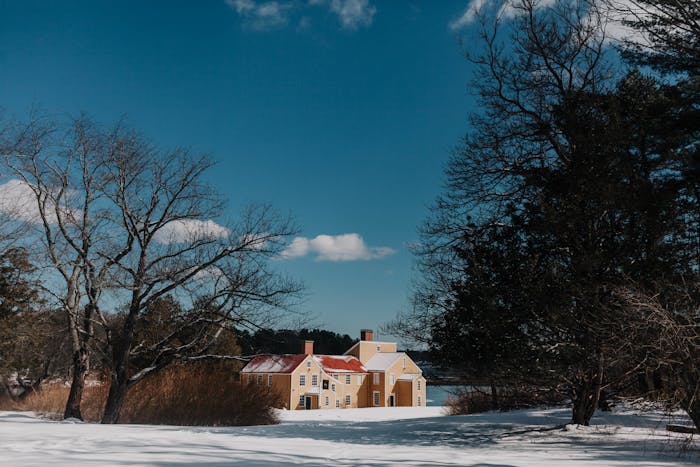Unoccupied properties can be a nightmare for New Hampshire landlords. Not only is there lost revenue, but you could end up dealing with squatters.
By understanding squatters rights in New Hampshire, these individuals can attempt to claim the property as their own through adverse possession.
To help protect yourself and your property, we’ll help you understand New Hampshire landlord-tenant laws, squatters’ rights, and adverse possession laws.
Let’s get started.
Trespassers vs. Squatters
Before we fully dive into squatters, it’s important to understand the difference between a trespasser and a squatter. While the two terms are similar, they have differences.
- Trespassers: Trespassing occurs when an individual enters a property without permission from the owner. It’s usually considered a criminal act.
- Squatters: Squatters, on the other hand, enter the property without the owner’s permission with the intent of living in it. This is more of a civil offense.
One of the most important things to understand about trespassers is that if they aren’t removed promptly, they can turn into squatters, which leads to much larger complications. If you notice trespassers on your property, contact local law enforcement to have them removed immediately.
Legality of Squatting in New Hampshire
Squatting in New Hampshire is illegal and can lead to both civil and criminal charges being filed against the individual involved. However, adverse possession, or squatters rights in New Hampshire, allows squatters to take ownership of a property if landlords don’t act.
Since squatting in New Hampshire is technically illegal, there are various penalties for squatters.
- Trespassing: Squatters are most commonly charged with trespassing. In New Hampshire, this is considered a misdemeanor, punishable by up to one year in jail and up to a $2,000 fine.
- Breaking and entering: When squatters forcefully enter a property, they can be charged with breaking and entering. This is a felony in New Hampshire, punishable with 3 to 15 years in prison.
- Utility service theft: If squatters use utilities such as gas, water, or electricity, this is considered utility service theft. Depending on the value of the utilities stolen, the resulting charges can be misdemeanors or felonies.
Since the last thing most landlords want to deal with is criminal proceedings, you must take care of any trespassers before the issue grows into something much larger.
Squatters Rights and Adverse Possession Laws in New Hampshire
While it might be difficult to believe, if trespassers aren’t dealt with in a timely manner, they could claim the property as their own through adverse possession.
Because adverse possession laws vary by state, New Hampshire landlords should understand the rules specific to their situation.
How New Hampshire Squatters Can Legally Claim Property Through Adverse Possession
It can be a nightmare if you find squatters living on your property. In the worst-case scenario, they can claim adverse possession and gain legal rights to the property.
Luckily, for squatters in New Hampshire to claim adverse possession, they must satisfy several requirements beforehand. If you keep a close eye on any unoccupied property, you should be able to avoid squatters.
We dug into the legal documents regarding squatter rights in New Hampshire and found that squatters must fulfill all the requirements below to claim adverse possession.
- Actual: The squatter must use the property as an owner would. They could document actual possession by improving the property in some way.
- Continuous Occupation: The squatter must reside in the property for at least 20 continuous years. If the occupant leaves the property for a period of time, the statute of limitations would reset.
- Hostile: The squatter can not have permission from the property owner to reside in the property.
- Open and Notorious: The squatter can not attempt to hide their occupancy on the property.
- Exclusive: Squatters attempting to claim adverse possession must be the only property occupants and act as the legal owner.
A New Hampshire squatter can file a claim for adverse possession if they fulfill these requirements.
Landlord Rights & Responsibilities
As a New Hampshire landlord, you have the legal right to call the authorities to remove anyone found trespassing on your property. If you have squatters, you must give them a 30-day notice to vacate the property. Ideally, they leave without any issues.
However, if the squatters do not leave the property, you must file an eviction lawsuit to remove them. This can be done by filing all the necessary paperwork with your county’s clerk of court.
If landlords want to avoid the eviction process, they could offer the squatters a cash-for-keys deal. In exchange for a negotiated sum of money, the squatter would agree to leave the property.
Squatters Rights & Responsibilities
Squatters in New Hampshire do not have any special rights. However, if they have lived on the property for at least 20 continuous years and met the other requirements, they have the right to claim adverse possession of the property.
How to Evict Squatters in New Hampshire
Most landlords want to avoid the eviction process if possible. However, it might be unavoidable if you have squatters on your property. Here are all the steps you’ll need to take to evict squatters in New Hampshire successfully.
- Call local law enforcement: Start the eviction process by alerting the local authorities of squatters on your property. While they won’t be able to force the squatters to leave, this action will be helpful in court by demonstrating your removal attempts.
- Issue a Notice to Vacate: If the squatters don’t leave after your initial request, you must file a formal Notice to Vacate. Squatters will then have 7 days to vacate the property.
- File an eviction complaint: If the squatters do not leave within the 7-day period, you will then file an eviction complaint with the New Hampshire district court.
- Serve the squatter: Once the court has processed the complaint, a court summons listing the court date will be served to the squatter. They will also be given a copy of the complaint.
- Attend the assigned court hearing: You and the squatter must attend the court date and present your case to the judge. If the judge finds your case compelling and rules in your favor, they will issue an eviction order.
- File the eviction order: After the judge issues an eviction order, you must file it with your local sheriff’s department. They will then set a date for eviction.
- Squatter is evicted: If the squatter hasn’t left the property by the eviction date, the sheriff’s department will remove them and their items on your behalf.
Important legal note: It might be tempting to consider a self-help eviction; however, this is illegal in New Hampshire. Doing so could make you liable for their court costs and attorney fees.
Legal Help for Landlords in New Hampshire
New Hampshire landlords dealing with squatters have legal resources available to help. Here are a few:
- New Hampshire Legal Assistance (NHLA): NHLA provides free civil legal aid to residents of New Hampshire.
- New Hampshire Eviction Diversion Program: The Eviction Diversion Program, offered through the New Hampshire courts, offers landlords a free mediation service to resolve disputes.
- New Hampshire Bar Association: The New Hampshire State Bar Association has a lawyer referral program that helps you find a lawyer specializing in landlord-tenant law.
Preventing Future Squatter Situations
Landlords concerned about squatters should take proactive measures to prevent these unwelcome trespassers from moving into their vacant properties. Here are a few tips to help you protect yourself.
- Make regular visits: When your property isn’t occupied, regularly visit it. Your presence alone can deter potential squatters from entering.
- Make the property look like it isn’t vacant: Hire a company to keep the lawn mowed during the summer and the driveway/sidewalks shoveled in the winter. These basic maintenance tasks can help make the home appear occupied.
- Install a security system: A security system and motion-activated lights outside can help secure your property from unwelcome guests.
- Keep neighbors in the know: Inform the neighbors that the property is vacant and have them help report any suspicious behaviors to the police.
- Talk to your local police: Inform the police department that your property is temporarily vacant. This will allow them to perform more frequent neighborhood patrols.
How Property Management Software Can Help
One of the best ways to prevent squatters is to ensure your property is occupied. Our free property management software can help you locate tenants, minimizing vacancies. Here’s how:
- Rental advertisement: Find the best tenants quickly and avoid long vacancies.
- Accept rental applications: Minimize paperwork by accepting digital rental applications.
- Screen rental applications: Make sure you’re choosing tenants who will respect your property and make timely rental payments.
- Create New Hampshire-specific leases: Protect your property and deter tenants from breaking their lease.
Sign up for TurboTenant today. It’s free and can help keep your properties occupied with tenants, not squatters.
Squatters Rights New Hampshire FAQs
Can you evict someone in the winter in New Hampshire?
Because there are no laws in New Hampshire restricting when evictions take place, a landlord can start the eviction process during the winter months.
Can I change the locks on a squatter in New Hampshire?
Changing the locks on squatters is a form of self-help eviction, which is illegal in New Hampshire. Instead, you need to go through the legal eviction process. Any landlord that changes the locks on squatters could face criminal charges.
How long does it take to evict someone in New Hampshire?
The entire eviction process in New Hampshire can take several weeks. Once you issue a Notice to Vacate, the squatter will have up to 30 days to leave the property. If they remain after that time, the landlord would file an eviction complaint with the courts. This process can take anywhere from a few days to a few weeks, depending on the court date. If the judge rules in the landlord’s favor, the squatter will have 7 days to leave the property.
What is the shortest time for squatters rights in New Hampshire?
The shortest time for squatters’ rights in New Hampshire is 20 years.



